At the welcome event for the Run to Live Great programme of this year’s Great Eastern Women’s Run, Singapore’s elite female runners and race influencers came together to share their running tips, knowledge and expertise with the programme’s participants.
This took the form of a panel discussion, with questions from the participants.
The Panel of Experts
The panellists consisted of the following:
Dr Lim Baoying – an avid endurance athlete as well as a resident physician at the Changi Sports Medicine Centre. She has completed 14 full marathons since 1999 and won the 42km Women’s Sundown Marathon in 2010.
Mok Ying Rong – a self-coached national runner and won the Sundown Marathon (21KM) in May this year. She is the younger sister of Sea Games marathon gold medallist, Mok Ying Ren.
Dipna Lim-Prasad – a national athlete, specialising in sprints and short distance races. She holds the 400m Hurdles national record in Singapore.
Liv Lo – a fitness enthusiast with a passion for staying trim and healthy. She has also been a yoga practitioner for the past eight years – and is now a certified yoga instructor.
Claire Jedrek – an event host and presenter, who has recently picked up motorsports professionally – and races in the Malaysian Super Series. At the same time, she also has a passion for running and keeping fit.
Chen Ming Ming – has been running for the past six years and she has completed a wide range of distances, from 10km to ultra marathons. At this year’s Great Eastern Women’s Run, she will be one of the pacers helping her fellow runners to achieve their personal best time goals.
Here are the main highlights of what the panel of experts shared with the participants.
How do you hydrate while running?
Dr. Lim: There is always a typical answer that I can tell you from personal experience. The guiding principle is to drink before you get thirsty. The hydration does not start while running but also in the days before the run and actually during every day of your life. This is because you need eight glasses of water a day but it is actually higher than that in Singapore’s humidity – especially when you are training for your runs.
So there are certain principles behind why running events have water points at certain distances. These encourage you to hydrate, especially in distances like the half and full marathons.
If you can pass urine after your run and it is quite clear, your hydration during the race would have been good. This is a non-numeric way of judging how hydrated you are.
What is your favourite form of cross training?
Lim-Prasad: I am a national athlete so I train six to nine times a week. I run about six times and I do gym two times a week and I have technical training because I hurdle as well. I like to stretch a lot in my spare time. I get tired when I do sprinting. So I do yoga at home and it is a simple way to get started. It is a good way to balance the tight muscles.
I relax during training so I try and train my upper body to be more balanced. When I am outside in the off-season, I try to do rowing. It is actually a full-body workout because you push off with your legs and finish with your arms. You can do it at the gym on a rowing metre but it is better to do it in the water as you can see the sunrise and that’s beautiful.
Lo: I think you should definitely balance things out and do not just do one thing or the other. I do yoga and running as well. When I am at home on the treadmill I put my legs on the side and sometimes I would run with weights and different techniques and balance it out with different things. I bike as well as go for hikes. If I enjoy mixing it up, I will get different types of exercises for each part of the body and would not get bored. If you run twice a week, you can also do yoga to mix it all up.
How would you advise first-time runners?
Jedrek: A lot of us are bound to make mistakes. I have not taken part in a lot but my first long run was a 21km one and I made lots of mistakes. I signed up a month before it started. I was running before, but not long distances. What’s great is that this Run To Live Great program will give you a massive training session on how to do it.
I thought I could run and simply go right out there and train but now I realize that you need to condition your body and start now. If you are doing long distances, condition your body.
I do motorsports and I get dehydrated and sick all the time, no matter how much I hydrate. I did a run last weekend and I got sick as well even though I thought I had hydrated enough. If there is something wrong, check it out. Look after your body. I am in my 30s and I still have a long way to go.
Chen: For a first-time runner, I would advise them to start training and not increase (the distance) more than 10% per week. Hydrate enough too and on race day, just run at a comfortable pace. Do not look too much at the time cause whatever time you clock, it will be a personal best anyway. So my advice is to enjoy the race and to really relish that first-time experience.
How does running on a treadmill compare to running on roads?
Mok: Personally, I prefer to run on a treadmill only when the weather is not good for running, such as during a thunderstorm or when it is raining. But firstly, there are a few differences in the biomechanics. The motion of a treadmill is helping us to move our legs backwards and that switches off part of the gluteus medius muscles and it is slightly easier.
On the ground, you are doing more work to move forward, compared to the treadmill. In a way, I would advise you to run outside on the road and not the treadmill. Only run on the treadmill when you really have to.
Also, if you have to run on the treadmill, increase gradient by 0.5 to 1 per cent to mimic real life runs because it will make it more realistic to run.
Is there a right technique to breathe so you do not get breathless when running?
Mok: There are a few ways to ease and increase our breathing. Firstly, there is pursed lip breathing that is used by people short of breath but runners can also use this during training or the first stages of races. It is when we purse our lips when we exhale. This creates more pressure in the lungs – thus increases the airflow in the lungs.
You may be anxious and excited at the start of the race and this results in a very high heart rate. So pursed lip breathing helps you to calm down. This is actually one technique I incorporate when running long races such as marathons.
Take deep breaths whenever you are anxious, too. This is also applicable too, when you have stitches. Every time you have these, it is our diaphragm that is contracting and causing this side pain. So taking a deep breath helps to release this contraction of the diaphragm.
Breathing should be spontaneous and you should just try to relax and enjoy your run.
What do you usually eat before an early morning race?
Mok: I would have something easy to digest. I drink Milo but some people are lactose intolerant and they get stomach upset. It works for me though – so why not?
Lim-Prasad: I am not a morning person. I wake up as late as possible. But I agree that for longer runs, you really need to have the energy to last the whole way. I like to take a banana and a power gel just before a race. If you can take a bit more, it will stay in your stomach a little longer.
Dr. Lim: If you are talking about longer events, it is not just the breakfast that is important. It is the diet a few days before and it’s called carbo-loading. Before a race I drink my cup of coffee and just take something to fill up my stomach. I usually have a few slices of bread with peanut butter, jam and cheese and I will eat accordingly, depending on how long the race is.
Lo: This is a journey that you can start making from the beginning and isn’t just about, I am going to exercise today so I need to eat healthy. Try to change your daily diet step by step. Be aware of what is good for you. We all eat different things. For example, I like my banana and cereal but not everyone does.
Jedrek: What Liv said is right. You must be aware of the benefits of eating healthy and practise it in the long term. I think it is really important a few days before the event too. I love my food so I don’t calorie count as much.
I eat bananas in the morning on an empty stomach before exercising. I love coffee but I try to stay away from it in the mornings. Stay away from diuretics or anything that makes you visit the toilet. Coffee dehydrates you as well – so stay on the healthy stuff. I love my carbos and pasta too, so I can eat a lot of it just before a race.
Chen: I eat the same thing before every race. I have a slice of toast for the half marathon or shorter races plus coffee with half a banana but for full marathons or longer runs, I eat two slices of toast.
I find that drinking coffee before a race helps to boost performance but I have had friends who say that drinking coffee before a race makes them go to the bathroom. So test out what works for you. For some, Milo works but for others who are lactose intolerant, that isn’t a good idea.
My general advice is to stay away from something with too many proteins and eat food high in carbs. Eat enough but not so much that you feel uncomfortable when running. Try to eat one or two hours before a race otherwise you may have an upset stomach if you eat too soon before the race.
Closer to the race, you can stimulate race conditions and try different types of foods to see what would suit you the most during race day, so it is all about trial and error as well.
What sort of stretches do you do before a run to stop cramps?
Lim-Prasad: It would be good to start with a short jog and then go to muscle stretches. Also, it may not be the muscles itself but you may be dehydrated. It will make you more prone to cramps so be sure to hydrate properly before a race.
Mok: Cramps have many causes and can be a result of many different reasons. If you are not conditioned to run that distance, you may also get cramps during the race because your muscles cannot cope with the rigours of the race.
Recent studies have shown that if you are not doing a lot of intensive and fast runs, it is more beneficial to not stretch before the run as it affects the muscles when you are running. The stretching you do after the workout is more important.
Jedrek: It is important to learn about your body and know what is good for you. Use trial and error experiments. Apart from stretching, our gear is important too. Do not wear new shoes when you are running. I once changed my shoes on the day of the race and I had all sorts of problems. Try and keep your habits normal and don’t change it on the day of the race. I think that is really important.
Chen: You may be dehydrated and not have enough salt. As well, the heat can also give you cramps. So during training runs, go at a pace you can sustain. Sometimes if you run too fast, at the end you may get cramps. So that is why we believe in even pace running.
Lo: For running, you want to stretch your legs and warm up your spine. It is important you move your spine in all directions. If you do forward stretch, do a backstretch as well. Also do forward bends and do some squats and stretch out your calves, twist and move your ankles and get blood flowing. Get your arms over your head too. I like to run on the spot and warm up before the race.
Dr Lim: As a doctor, stretching is not necessary. I usually do not stretch before a run but I’ll warm up a little and definitely after a run, you’ll want to stretch because there is a lot of lactic acid in the muscles so make sure you stretch afterwards so that it does not give you too much muscle soreness afterwards.
We encounter traffic lights when we run outside. Should you stop to wait or jog on the spot?
Jedrek: I think it is definitely personal. I don’t think the traffic light is that long but I think you should keep moving to keep yourself going. You are in the zone so I think you shouldn’t stop.
Dr. Lim: I would choose a route without many traffic lights but if you meet one, then I would take the chance to stretch out any areas with tensions.
Mok: It also depends on how fast you are running when you reach the traffic light. If I’m doing a hard run, I would continue to jog a while. At a fast pace, your legs are tired and if you stop, and continue to run after the light turns green, your legs are heavier, because the blood is suddenly rushing to your legs.
I would continue running and try to find an overhead bridge. Actually in Singapore, if there is a traffic light, I have come to realize that there is an overhead bridge as well, so I keep running till I see the bridge.
Lim-Prasad: Generally we try to mimic race day conditions during training sessions. So if you prefer to do a continuous run on race day, do not stop at traffic lights. Go to somewhere like MacRitchie and do a full run. If you are used to stopping at traffic lights, you will feel the need to stop as well on race day.
What last words do you have to share with runners?
Chen: We have 12 weeks to go before the Great Eastern Women’s Run so there is still a lot of time to test what you want to do on race day. Basically take this time to see what works for you nutrition-wise and pace-wise.
Do not increase your mileage by more than 10 per cent a week when you are running by yourself. Hydrate and eat well and most importantly, rest well. Last but not least, enjoy yourself on race day. You are not running the race for anyone else but for yourself, after all.
Read all about the Run To Live Great Welcome Ceremony here.

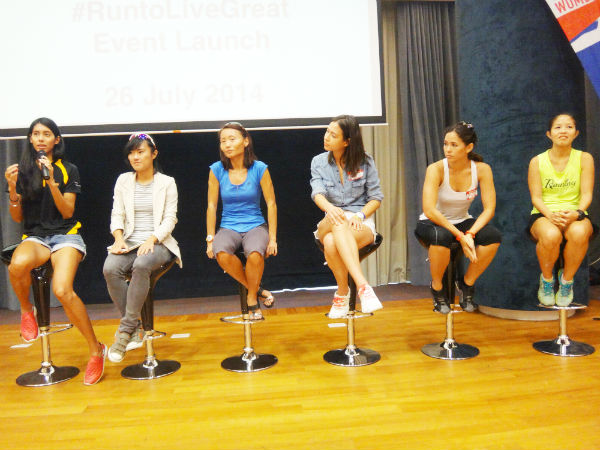
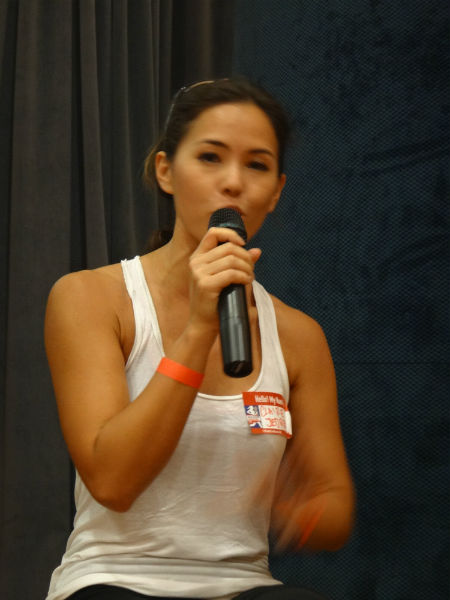


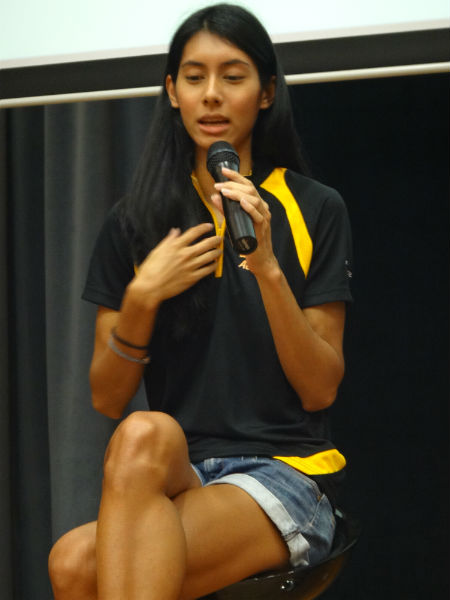
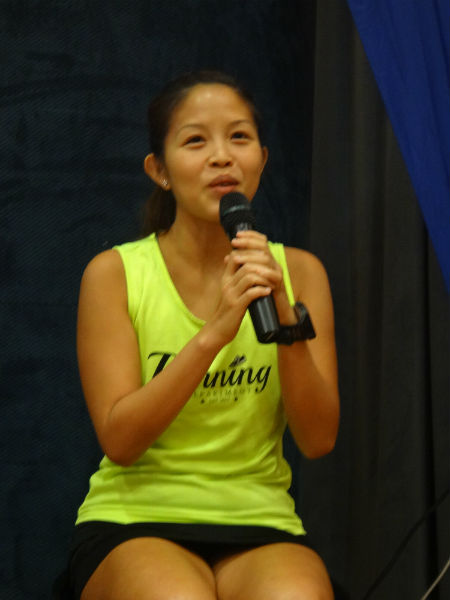
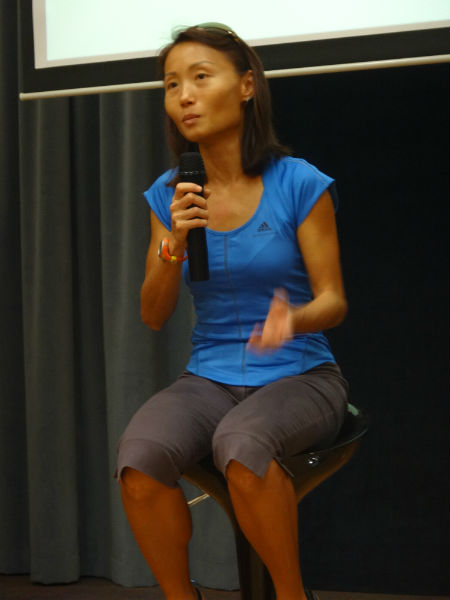
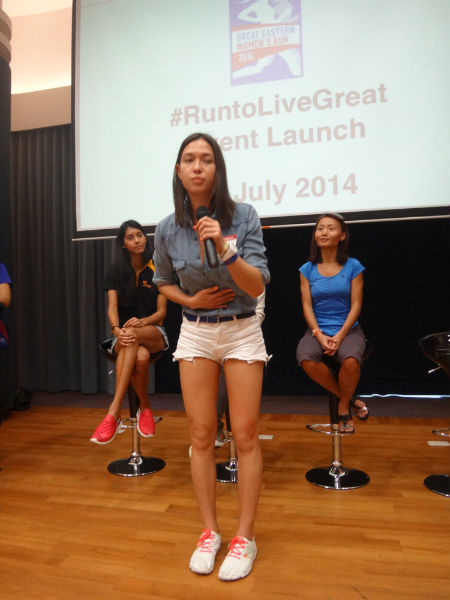
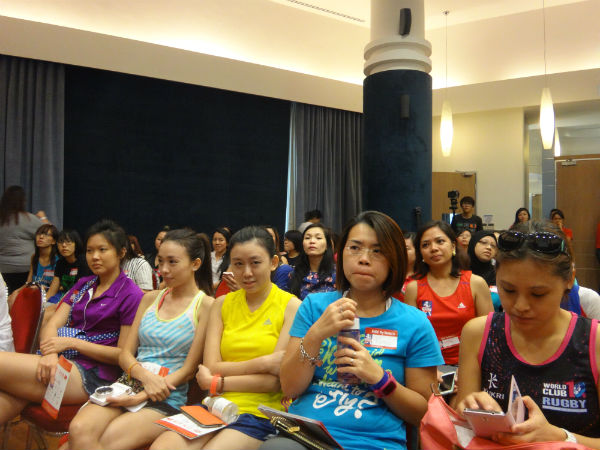
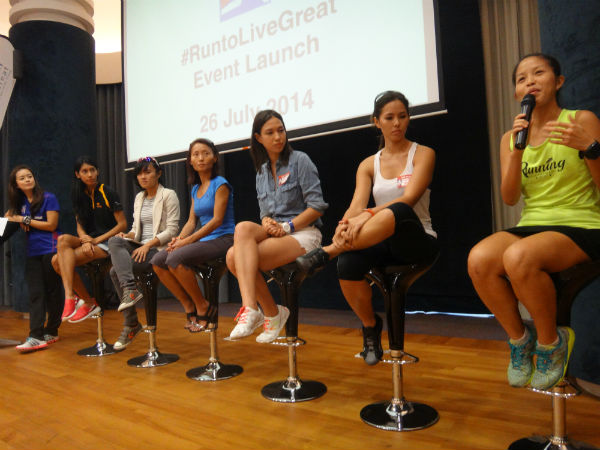
Leave a Comment